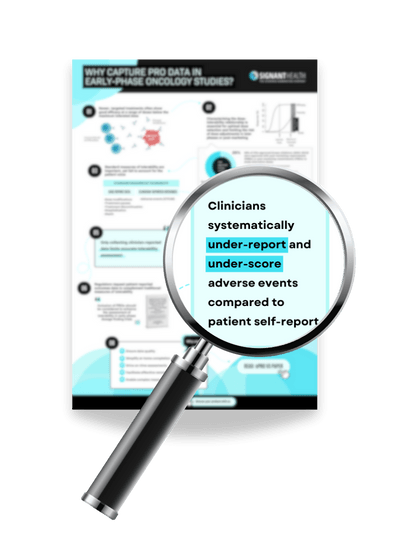The Value of Patient-Reported Outcomes Data in Early-Phase Oncology Studies
At Signant Health, we understand the unique challenges of early phase oncology trials. Selecting the optimal dose is crucial in this dynamic research landscape.
Explore this guide to learn more about the importance of, and solutions for easy collection of, patient-reported outcomes data in early-phase trials.
Key measures of tolerability in early-phase development include clinician-reported adverse events and indicators such as dose adjustments, hospitalization, and death. Newer, targeted oncology drugs often show efficacy across a range of doses, making it essential to fully characterize their tolerability profile to determine the optimal dose. However, a tolerability assessment is incomplete without patient experience data.
The importance of patient-reported outcomes data in early-phase oncology drug development is underlined by FDA’s Project Optimus and their draft guidance on optimizing the dose of oncology treatments.
The ePRO Experts
Here's how our leading ePRO solution addresses the unique challenges of early phase oncology studies:

Capturing patient-reported adverse events
Collection and grading of adverse events using the full PRO-CTCAE item bank, to complement clinical reports
Understanding the impact of adverse events
Measures of the impact of adverse events on physical function and role function
Supported by Signant’s science and medicine experts
Solutions designed with decades of experience, and with a full understanding of the changing regulatory landscape
